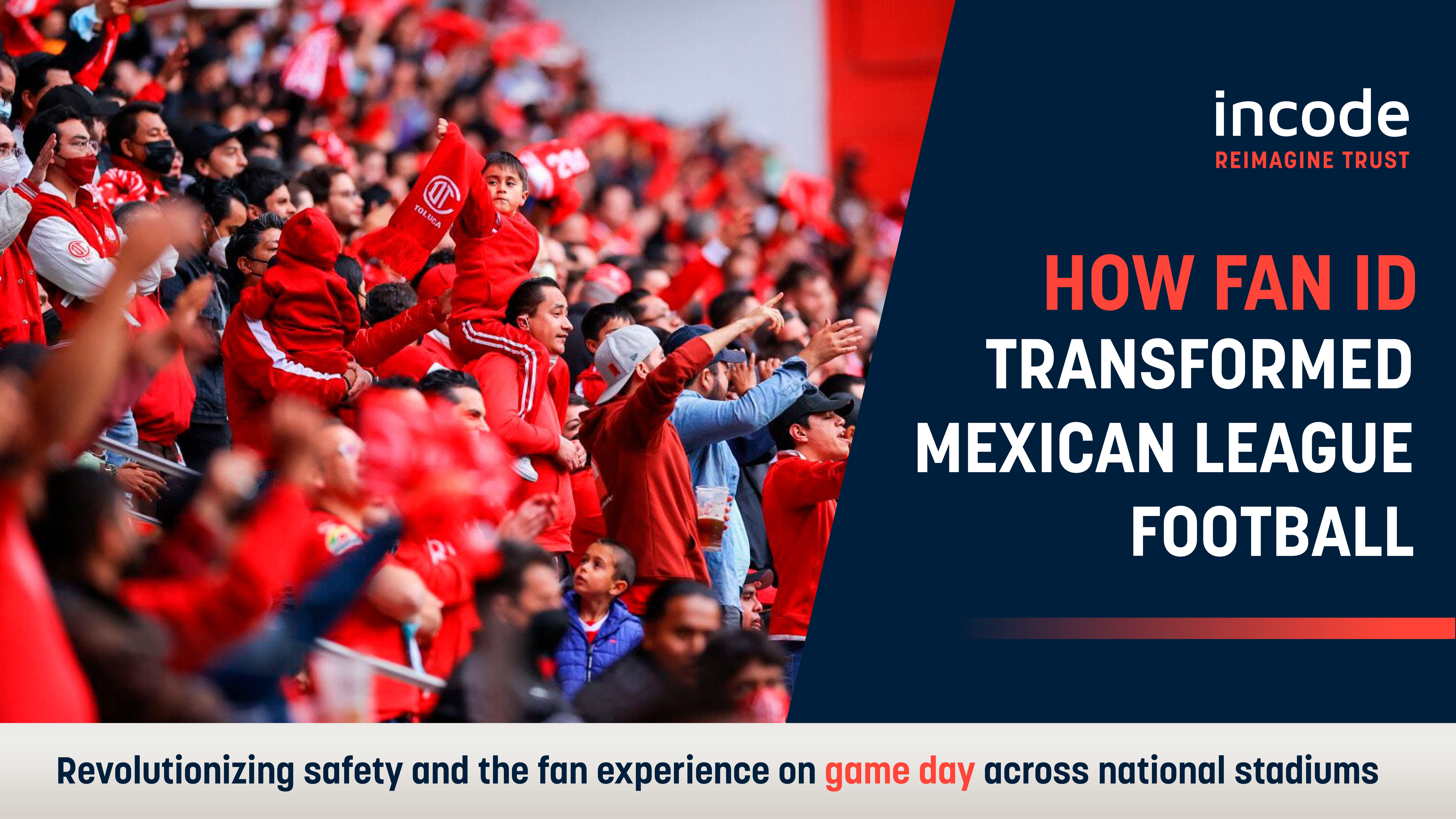How Fan ID Transformed Mexican League Football
Revolutionizing Safety and the Fan Experience on Game Day across national stadiums
Mexico turns to FAN ID to solve fan violence
A year after one of the most violent days in Mexico’s sporting history, Fan IDs are helping to provide a safer and more satisfying experience for everyone.
On March 5th, 2022, Mexican clubs Atlas and Querétaro faced off in a Liga MX game. David was up against Goliath as Atlas was the national Mexican champion while Querétaro had, at best, placed sixth. However, the game would go down in history for all the wrong reasons when rival fans clashed.
Violent scenes
Videos of the brutal scenes at the main soccer stadium in Querétaro revealedfans attacking each other with fists, chairs, and knives. Images circulated of fans lying unconscious, stripped and bloodied. One fan was seen naked lying in a pool of his own blood.
Although some Atlas fans believe there were deaths, no fatalities were reported. Journalist David Medrano Félix initially claimed that there were 17 deaths but later retracted his report.
Whatever the truth, the game was a watershed moment for Mexican soccer. Fans and authorities demanded drastic action as the graphic images spread across social media. The solution authorities came to agree on would dramatically change the game day experience in stadiums across Mexico, but also be used as a template for other leagues around the world grappling with similar issues.
Fast, simple and secure
Soccer authorities strive to identity and eliminate troublemakers while keeping the game accessible and enjoyable. While the proliferation of game broadcasts has undoubtedly brought soccer to a wider audience, it has also made identifying violent fans more complex.
Despite the abundance of footage available to law enforcement officials, pinpointing a culprit with enough certainty to support prosecution and exclusion from future games remains a daunting challenge. The task is made even more difficult by the fact that violent fans often take steps to obscure their identity, whether by donning disguises or obscuring their faces with hoods or scarves. As a result, police and stadium security personnel are left with the unenviable task of sifting through hours of footage in an attempt to identify those responsible for acts of violence and ensure that they are held accountable for their actions.
In the aftermath of the shocking events at the Querétaro soccer stadium, officials were left grappling with the difficult task of finding a solution that would ensure the safety and security of fans while also preserving the accessibility and enjoyment of the game. It was in this context that Fan ID, developed by leading identity-proofing provider, Incode, emerged as a groundbreaking new technology. This AI–driven, biometric solution harnesses the latest advances in facial recognition technology to instantly identify every individual entering a stadium, offering a comprehensive solution to the challenge of ensuring stadium safety.
Working in close collaboration with the Mexican league, Incode adapted their revolutionary, fully in-house developed solutions to the unique needs of soccer fans, creating an app that is convenient, seamless, and secure. Designed to process tens of thousands of personal data files, Fan ID provides instant verification with just a simple selfie taken on a smartphone. For stadium authorities, the digital ID offers a powerful tool for identifying criminals and monitoring attendance, while for fans, it represents a fast and simple way to ensure a safer environment for event-goers.
Perhaps most importantly, Fan ID removes the cloak of anonymity that has traditionally protected violent fans from being held accountable for their actions. With their identity securely registered in the app’s QR code, fans who misbehave are recorded on their ID, creating a lasting record that can be used against them. Depending on the severity of the offense, authorities could issue a range of sanctions from fines to temporary or permanent exclusion from all stadiums across Mexico. In extreme cases, Fan ID could even support criminal prosecutions, providing a powerful deterrent against violence and ensuring that soccer stadiums remain safe and welcoming for all fans.
Template for the future
Since the introduction of Fan ID at the Clausura 2023 tournament, the response from fans and stadium officials has been overwhelmingly positive. With half a season gone, this revolutionary app has demonstrated its ability to offer quick verification for all fans entering the game, providing clubs with complete knowledge of who has entered each match and their past history of behavior. It’s clear that this app could be a game-changer in combating serious violence at top soccer matches around the world.
The trial has shown that while optional verification is a good first step, the Fan ID platform must become mandatory for anyone looking to enter a league game. By doing so, individuals intending to cause disruption are prevented and monitored, without compromising the overall enjoyment of the game.
The app draws on Incode’s track record of continuous evaluation with iBeta Level 2 conformance and NIST certification, to provide a one-stop shop for verification and authentication.
With security concerns on the rise, soccer fans have been asked to provide proof of identity and submit to extensive bag and body searches. This intrusive process stands in the way of the fun, family-friendly atmosphere most clubs are keen to promote. Fan ID offers a convenient and efficient solution, allowing fans to seamlessly have all needed information on their smartphones.
As stadium officials and fans around the world look towards the next phase of Fan ID, the potential for this app to become the blueprint for security at top soccer matches is clear. By providing a greater element of monitoring, Fan ID serves as both a deterrent and a source of reassurance for long-time fans. Incode’s tried and tested technology has already demonstrated its ability to handle vast data demands while keeping the personal information of fans safe. All eyes are on the future of this app, and the soccer community is eagerly anticipating its continued success.
